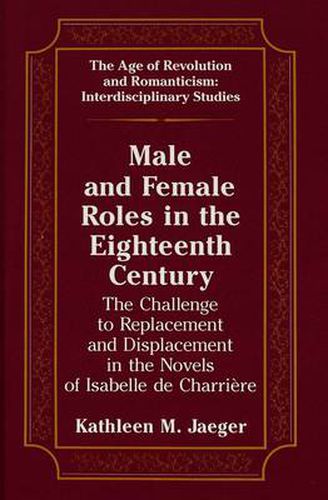Readings Newsletter
Become a Readings Member to make your shopping experience even easier.
Sign in or sign up for free!
You’re not far away from qualifying for FREE standard shipping within Australia
You’ve qualified for FREE standard shipping within Australia
The cart is loading…






A contemporary of the French philosophes and in subtle dialogue with them, Isabelle de Charriere weaves a compelling novelistic framework that intrigues readers of women’s writing. This study focuses on novels by the 18th-century Charriere writing in francophone Switzerland. It explores her determination to dehierarchize the positions of male and female in 18th-century society and to reject the conventional ideal of human destiny. The study simultaneously traces the transition from an Ancien Regime concept of self, particularly the female self, to a Romantic conception of the individual and modern individualism through the evolution of character. In order to present new conclusions, it considers Charriere’s novels within a feminine tradition dating from the 17th century and also in the light of current French feminist theory.
$9.00 standard shipping within Australia
FREE standard shipping within Australia for orders over $100.00
Express & International shipping calculated at checkout
A contemporary of the French philosophes and in subtle dialogue with them, Isabelle de Charriere weaves a compelling novelistic framework that intrigues readers of women’s writing. This study focuses on novels by the 18th-century Charriere writing in francophone Switzerland. It explores her determination to dehierarchize the positions of male and female in 18th-century society and to reject the conventional ideal of human destiny. The study simultaneously traces the transition from an Ancien Regime concept of self, particularly the female self, to a Romantic conception of the individual and modern individualism through the evolution of character. In order to present new conclusions, it considers Charriere’s novels within a feminine tradition dating from the 17th century and also in the light of current French feminist theory.